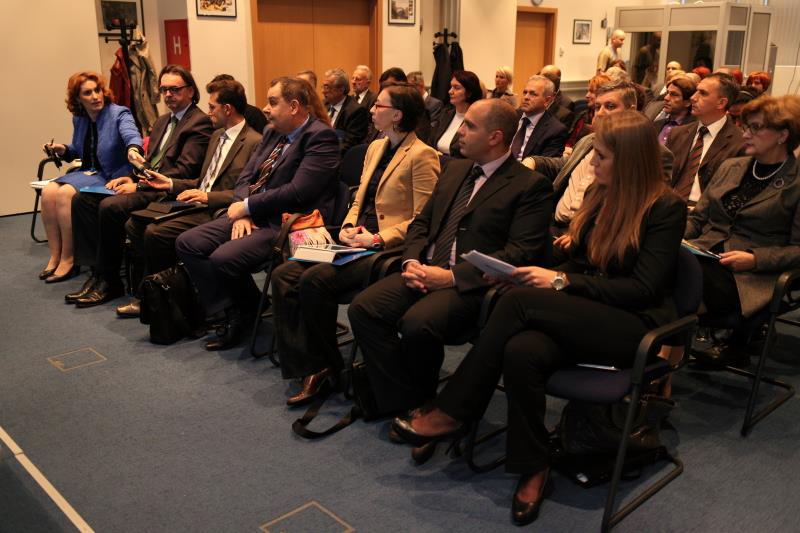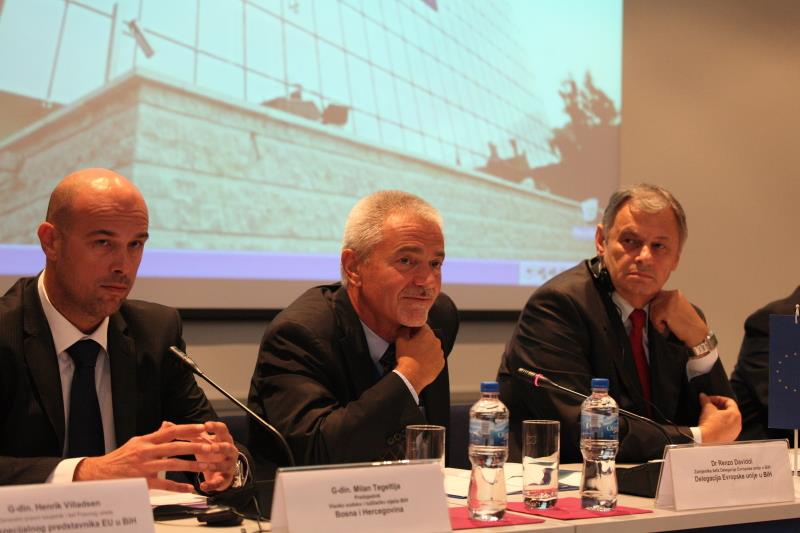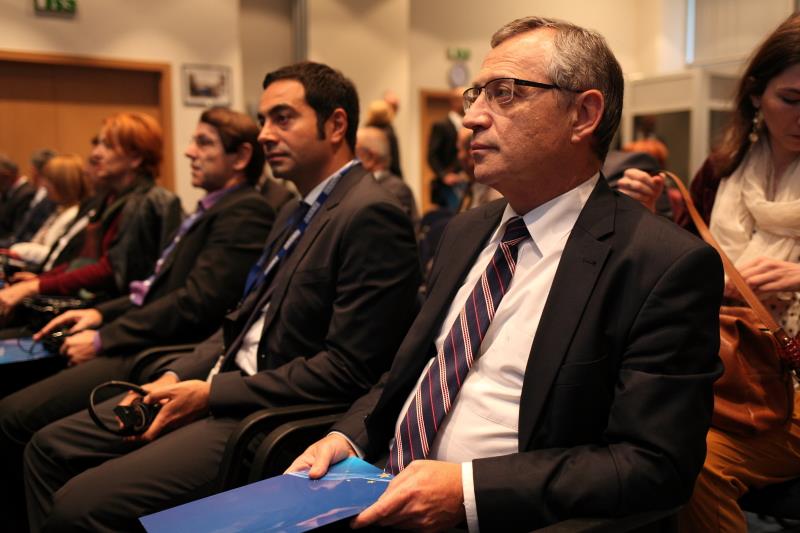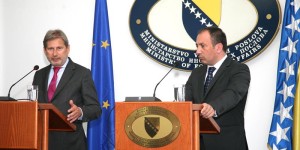Check against delivery
Your Excellency, ladies and gentlemen, I would like to welcome you here today to discuss and reflect upon an issue of pivotal importance to us all, namely the investigation and adjudication of war crimes cases throughout Bosnia and Herzegovina.
The country faces a uniquely harsh legacy and difficult challenge in this regard. We are talking of more than 1200 cases of reported war crimes with an actually identified suspect and several thousand more crimes where the suspect is still unidentified.
We believe that bringing justice in this area is crucial for two reasons. First if these cases are left unattended, an impunity gap will persist and widen. One of the most fundamental rights – which is the right of victims of crimes to obtain justice – will be left unattended and violated. Second, victims and their families will not be able to bring closure to their past – which given the scale of the legacy we are facing means, that Bosnia and Herzegovina’s society will not be able to bring a closure to its history. Together, this will contribute to a continued lack of ability of the country and its people to look forward and move ahead, jointly towards, amongst other things, a European future.
That the judiciary and prosecution services throughout Bosnia and Herzegovina have therefore a particular heavy burden to address and a great responsibility to fulfil, was also recognized in the National War Crimes Strategy. A burden which also hinders accelerated progress in other aspects of their work, be it other forms of criminal justice, or indeed civil justice.
In recognizing the importance of the national strategy, and in consideration of the gross violations of human rights that took place during the conflict, in 2011 the EU took a two-pronged approach to place greater emphasis on the issue; firstly by making it an important topic of the Structured Dialogue on Justice, a topic on which my colleague will elaborate later this morning, and secondly through the agreement of the EU member states that 14 million euros of extraordinary IPA budgetary support be provided to the country to hasten the war crimes case processing, with the ultimate objective of significantly reducing the numbers of cases.
As a result of the guidance of the Supervisory Body, and the significant technical input of the secretariat of the HJPC to ensure the various ‘checks and balances’ be put in place, particularly the preparation of Prosecutor offices action plans for war crimes case processing, in February this year the IPA budgetary support formally commenced. In the subsequent months, 137 staff were recruited for 16 prosecutor offices, 6 courts and the Office of Criminal Defense (OKO) within the Ministry of Justice of BiH. We would like to take this opportunity to remind the respective budgetary authorities that the spirit of the extraordinary budgetary support is to complement, not replace, domestic financing of prosecutors and judges and their respective staff.
In terms of progress, in receiving the six-monthly reports from state and entity Chief Prosecutors and the six court presidents we can say that it is in a very early stage of implementation, and so it would be premature to present an overly positive outcome.
Notwithstanding that, we note that the initial target of a 5% reduction of those cases with an identified suspect or suspects, i.e. the ‘KTRZ cases’, has been exceeded. We remain confident that the momentum we have noted in recent months, as reflected in the increased prosecution office activities will actually accelerate. However, we would raise a note of caution that what ultimately matters to ensure due process is the quality and not the quantity of the reduction of the war crimes backlog and the related investigations. Next year, when the project has been running some 18 months, the Supervisory Board will look at the relevant results and also in light of evolving needs recommend to us how to reallocate resources for 2016.
In establishing a mechanism to monitor progress of war crimes case monitoring we created a partnership with the OSCE. As many of you present are aware, the OSCE role is twofold: to track and report to us on progress, but also to support and advise the institutions benefitting from IPA support. We are appreciative of the intensive work undertaken by the OSCE since the start, and later this morning you will hear the OSCE’s analysis of progress, as well as their plans for a separate but much-anticipated capacity building project for all war crimes staff.
I would like to end my remarks with some words of thanks; to the Chairman and members of Supervisory Body of the National War Crimes Strategy for co-organising today’s event. The Supervisory body is and will remain our key partner body in ensuring progress and quality results vis-à-vis the benefitting institutions. Their presentation of the six-monthly reports of war crimes case processing later this morning will be important. I would also like to thank the President of the High Judicial and Prosecutorial Council and his staff for their continuous support for this important topic over the past 2 years, as well as the prosecutors and court presidents for their hard work in moving ahead with the war crimes backlog.
You are providing a crucial contribution to a stable and better future for Bosnia and Herzegovina.
Hvala vam.









